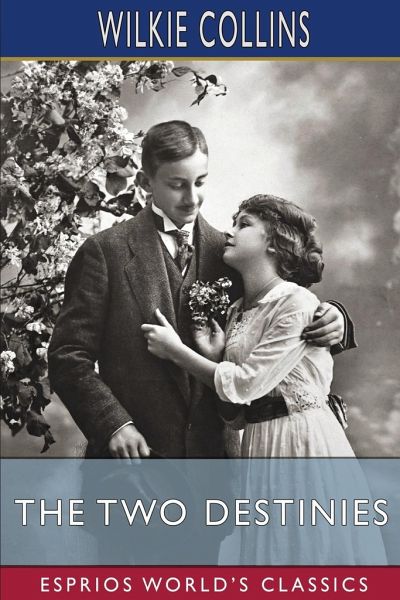Nicht lieferbar

The Two Destinies (Esprios Classics)
Versandkostenfrei!
Nicht lieferbar
William Wilkie Collins (8 January 1824 - 23 September 1889) was an English novelist and playwright known for The Woman in White (1859) and The Moonstone (1868). The last has been called the first modern English detective novel. Born to a London painter, William Collins, and his wife, the family moved to Italy when Collins was twelve, living there and in France for two years, so that he learned Italian and French. He worked at first as a tea merchant. On publishing his first novel, Antonina, in 1850, Collins met Charles Dickens, who became a friend and mentor. Some Collins works appeared first ...
William Wilkie Collins (8 January 1824 - 23 September 1889) was an English novelist and playwright known for The Woman in White (1859) and The Moonstone (1868). The last has been called the first modern English detective novel. Born to a London painter, William Collins, and his wife, the family moved to Italy when Collins was twelve, living there and in France for two years, so that he learned Italian and French. He worked at first as a tea merchant. On publishing his first novel, Antonina, in 1850, Collins met Charles Dickens, who became a friend and mentor. Some Collins works appeared first in Dickens's journals Household Words and All the Year Round. The two also collaborated on drama and fiction.








